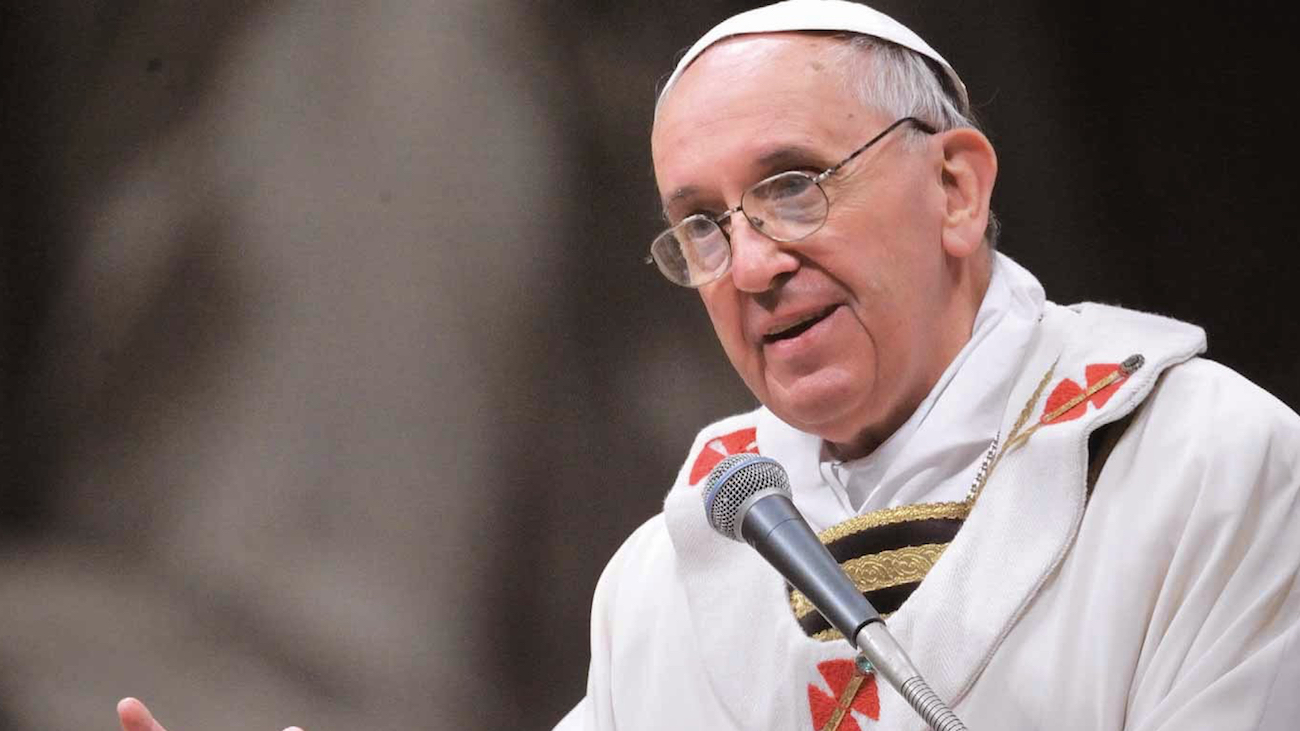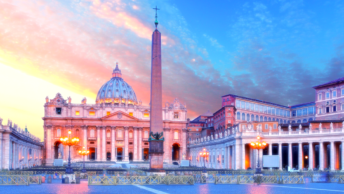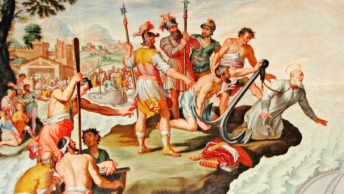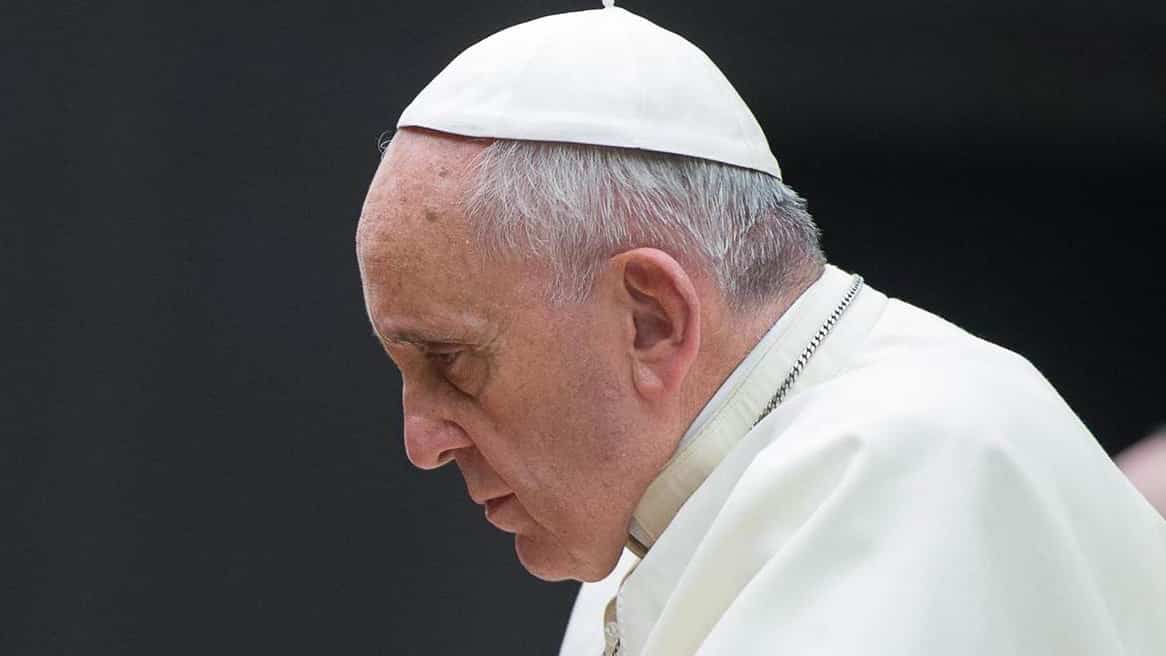On November 22 five staff from America Magazine, two Jesuits and three laypeople, interviewed Pope Francis on topics ranging from polarization in the U.S. church to racism, the war in Ukraine, the Vatican’s relations with China, and church teaching on the ordination of women. I read the Pontiff’s responses with awareness of the difficulty of the challenge he faced and the impact his words could have, not only on Catholics, but on people of other faiths and no faith, as well.
The interviewers posed fourteen questions in all, and the Pontiff devoted a little under 5000 words to his responses. He answered many of those questions clearly and helpfully, in particular those about the sex abuse crisis in the Church, the Russian aggression against Ukraine, and the problem of racism.
Some other responses, however, were inadequate and/or confusing; and one was inaccurate. Here are the relevant questions and the Pope’s answers, followed by my analysis.
Inadequate/Confusing Responses
QUESTION: “The majority of Catholics seem to have lost faith in the bishops’ conference’s ability to offer moral guidance. How can the U.S. Catholic bishops regain the trust of American Catholics?” ANSWER: “The question is good because it speaks about the bishops. But I think it is misleading to speak of the relationship between Catholics and the bishops’ conference. The bishops’ conference is not the pastor; the pastor is the bishop . . . Let us not dissolve the power of the bishop by reducing it to the power of the bishops’ conference. Because at that level, these tendencies compete, more on the right, more on the left, more here, more there, and anyway [the bishops’ conference] does not have the flesh-and-blood responsibility like that of a bishop with his people, a pastor with his people. . . . Jesus did not create bishops’ conferences. Jesus created bishops, and each bishop is pastor of his people.”
ANALYSIS: When Jesus created bishops, he gave them the power to “bind on earth” and in heaven (Matt 18:18) and one of the things they brought forth, over time, was the bishops’ conference. What America’s interviewers called “the ability to offer moral guidance” is one of the purposes of that conference. When the bishops offer that guidance in concert, they are fulfilling that purpose, and doing so does not mean they are, as Francis suggested, “reducing” their individual powers. Francis’ claim had the effect of diverting attention from the interviewers’ (legitimate) question.
QUESTION: Should the bishops prioritize abortion in relation to other social justice issues? ANSWER: “[Science has shown that] shortly before one month after conception the organs and the DNA are already delineated in the tiny fetus, before the mother even becomes aware. Therefore, there is a living human being. I do not say a person, because this is debated, but a living human being. And I raise two questions: Is it right to get rid of a human being to resolve a problem? Second question: Is it right to hire a “hit man” to resolve a problem? The problem arises when this reality of killing a human being is transformed into a political question, or when a pastor of the church uses political categories.”
“Each time a problem loses the pastoral dimension (pastoralidad), that problem becomes a political problem and becomes more political than pastoral. I mean, let no one hijack this truth, which is universal. It does not belong to one party or another. It is universal. When I see a problem like this one, which is a crime, become strongly, intensely political, there is a failure of pastoral care in approaching this problem. Whether in this question of abortion, or in other problems, one cannot lose sight of the pastoral dimension: A bishop is a pastor, a diocese is the holy people of God with their pastor. We cannot deal with [abortion] as if it is only a civil matter. . . The sacramental part of the pastoral ministry is in the relationship between the pastor and the people of God, between the bishop and his people. And this cannot be delegated to the bishops’ conference . . . Obviously, each bishop must seek fraternity with the other bishops, that is important. But what is essential is the relationship with his people.”
ANALYSIS: On its face, this long answer to a short question may seem more than adequate. On closer examination, however, it falls far short of adequacy. The question concerns how important the issue of abortion is. Francis’ answer shifts attention to a very different question—should the bishops address the issue singly or in concert. The answer to that question is simple: They should do both. And Francis should have answered the question that was asked.
QUESTION: Some people in the church and in politics say you are paying a high price for maintaining silence on human rights [in China]. ANSWER: ” It is not a matter of speaking or silence. That is not the reality. The reality is to dialogue or not to dialogue. And one dialogs up to the point that is possible . . . Dialogue is the way of the best diplomacy. With China I have opted for the way of dialogue. It is slow, it has its failures, it has its successes, but I cannot find another way. And I want to underline this: The Chinese people are a people of great wisdom and deserve my respect and my admiration. I take off my hat to them. And for this reason I try to dialogue, because it is not that we are going to conquer people. No! There are Christians there. They have to be cared for, so that they may be good Chinese and good Christians.”
ANALYSIS: To begin with, the Pontiff confuses the issue by referring to what reality is and isn’t. (Note: I believe he meant to say “choice” instead of “reality”: in other words, a “choice between speaking and remaining silent.”) He adds to the confusion by saying the choice is between dialoguing and not dialoguing. But it seems clear that the questioner was asking, in effect, whether Francis should have formally condemned China’s egregious violations of human rights. Underlying that question is the idea that God Himself expects the Pope to condemn evil where it exists. (Substituting dialogue for condemnation does not meet that expectation.) Instead of acknowledging this vital moral point, however, Francis switches to a statement about the wisdom of the Chinese people, which is totally irrelevant to the issue.
QUESTION: What would you say to a woman who is already serving in the life of the church, but who still feels called to be a priest? ANSWER:“So there are three principles, two theological and one administrative. The Petrine principle, which is the ministerial dimension, but the church cannot function only with that one. The Marian principle, which is that of the spousal church, the church as spouse, the church as woman. And the administrative principle, which is not theological, but is rather that of administration, about what one does . . . For example, in the Council for the Economy, where there are six cardinals and six laypersons. Two years ago, I appointed five women among the six laypersons, and that was a revolution. The deputy governor of the Vatican is a woman. When a woman enters politics or manages things, generally she does better. Many economists are women, and they are renewing the economy in a constructive way.”
ANALYSIS: When I read this excellent and very timely question, I fully expected the Pope to be more than ready with a firm and vigorous reply. For example, to say “Priesthood for women can’t happen and here is why . . . “ or (possible but unlikely) “It may be a possibility in the future, but not now, and here is why . . . “ Instead, he seems to be saying, “there are these three principles and women are already represented in two of them, the Marian and the Administrative, and two out of three is sufficient.” It would have been awkward enough if he had stopped there, but he chose to add a limp compliment—that they do a heck of a job in the administrative role. (He should not be surprised if a sizable number of women are more outraged than placated by that comment.)
QUESTION: If you look back, are there three things that you would have done differently, or that you regret? ANSWER: “All! All! [Said in English, and laughs and laughs.] All differently! However, I did what the Holy Spirit was telling me I had to do. And when I did not do it, I made a mistake.”
ANALYSIS: I understand that this answer was, in part at least, lighthearted. But in the late 19th century, Vatican I formalized a doctrine known as Papal Infallibility that ever since has made certain spiritual comments more serious than they might otherwise be. That doctrine says that the Holy Spirit gives special guidance to the Pontiff in statements concerning faith and morals. Francis is saying that he has on occasion rejected the Holy Spirit’s guidance. We are left to guess whether he did so since becoming Pontiff and if the guidance ever concerned matters of faith and morals. If so, then we are left wondering whether Pontiffs can make statements that purport to be infallible but are anything but. Francis would have done the Church a favor if he had been more careful in framing this response!
Erroneous Response
QUESTION: “You warned against “the simplistic reductionism which sees only good or evil, or the righteous and sinners” and you also called for “a renewed spirit of fraternity and solidarity, cooperating generously for the common good. [Yet it’s gotten worse.] How can the church respond to polarization within its own life and help respond to polarization in society?” ANSWER: “A Catholic cannot think either-or (aut-aut) and reduce everything to polarization. The essence of what is Catholic is both-and (et-et). The Catholic unites the good and the not-so-good. . . The Catholic always harmonizes differences. If we see how the Holy Spirit acts; it first causes disorder: Think of the morning of Pentecost, and the confusion and mess (lío) it created there, and then it brings about harmony. The Holy Spirit in the church does not reduce everything to just one value; rather, it harmonizes opposing differences. . . . Jesus went beyond all this [one sidedness] by proposing the Beatitudes, which are also something different.”
ANALYSIS: This response is woefully at odds with traditional Catholic philosophy and moral theology. In that tradition, we are called to seek truth and reject error; in doing so we must distinguish between ideas that are completely true and those that are completely false, or partly true and partly false; the main guiding principle in this process is the “principle of contradiction”—an idea cannot be both true and false at the same time and in the same way. Francis’ claim that “the Catholic unites the good and the not-so-good. . . . the Catholic always harmonizes differences” is the same as saying “the Catholic unites and harmonizes truth and falsity,” and that is not only untrue but also absurd.
At this point, Francis makes a theologically outrageous statement. (To be charitable to Francis, it is possible that the transcriber mangled his words.) In any case the published document quotes him as saying (see above) that the Holy Spirit first causes disorder and creates confusion and mess, and then brings about harmony. In other words, God causes trouble and then overcomes it. Is this borderline heresy? Or does it cross that border?
Keep in mind that the person being interviewed was not simply a bishop (the Bishop of Rome), but also the Supreme Sovereign Pontiff and the Successor of St. Peter. His responses were offered as guidance to the planet’s 1.2 billion Catholics and other Christians. Their inadequacy will surely cause confusion and dismay. My hope and prayer are that the bishops around the world—both individually and in conferences—will offer wiser and more helpful guidance.
Copyright © 2022 by Vincent Ryan Ruggiero. All rights reserved.







